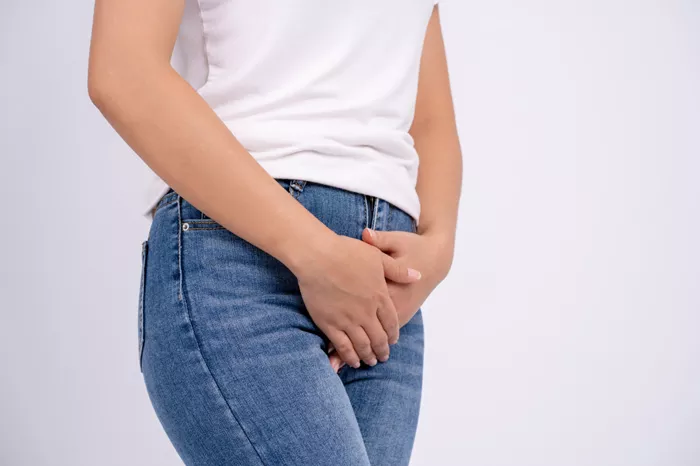Vaginal dryness is a common condition that affects many women at different stages of life. It can lead to discomfort, pain during sex, and even a sense of irritation or itching in the vaginal area. While it can be a normal part of aging or hormonal changes, it’s important to understand the symptoms, causes, and treatment options. This article explains vaginal dryness in simple terms to help you identify and manage it.
What is Vaginal Dryness?
Vaginal dryness occurs when the tissues in the vagina do not produce enough natural lubrication. This can lead to discomfort or pain during activities like sexual intercourse, or even cause irritation in the vaginal area. It is often linked to hormonal changes, but there are other potential causes as well. Understanding the condition can help women find effective ways to manage it.
Common Symptoms of Vaginal Dryness
The symptoms of vaginal dryness vary from mild discomfort to more severe irritation. Here are some common signs:
Itching or Burning Sensation
One of the first signs of vaginal dryness is a persistent itching or burning feeling in the vaginal area. This may worsen with certain activities, such as exercise or after intercourse.
Pain During Intercourse
Vaginal dryness can cause discomfort during sex, often described as a feeling of tightness or stinging. This can lead to a decrease in sexual satisfaction and sometimes avoidance of intimacy.
Vaginal Irritation or Redness
The lining of the vagina becomes more sensitive when dry, leading to irritation. This can make the area feel sore, and it may appear red or inflamed.
Frequent Urination or Urinary Tract Infections (UTIs)
Vaginal dryness can also lead to irritation of the urethra, the tube that carries urine from the bladder. This irritation can cause more frequent urination or increase the likelihood of UTIs.
Increased Vaginal Infections
A lack of natural lubrication can make the vaginal environment more prone to infections. Dryness can reduce the vagina’s ability to maintain a healthy balance of bacteria, leading to yeast infections or bacterial vaginosis.
Discharge Changes
You may notice a change in vaginal discharge, which might become thicker or even absent. Some women experience more discharge as the body tries to compensate for dryness.
What Causes Vaginal Dryness?
Understanding the causes of vaginal dryness is important for effective management. Some of the most common factors include:
Hormonal Changes (Menopause)
The most common cause of vaginal dryness is a decrease in estrogen levels, particularly around menopause. Estrogen helps maintain vaginal moisture and elasticity. As levels decline, vaginal tissues can become thinner and drier.
Breastfeeding
After childbirth, while breastfeeding, many women experience hormonal changes that can reduce vaginal lubrication. This can lead to temporary dryness.
Medications
Certain medications, such as antihistamines, antidepressants, and chemotherapy drugs, can reduce lubrication. If you suspect a medication is contributing to vaginal dryness, talk to your doctor about alternatives.
Medical Conditions
Conditions like diabetes, autoimmune diseases, or treatments such as radiation therapy can affect vaginal moisture. Some women also experience vaginal dryness as a symptom of other health issues.
Lifestyle Factors
Stress, smoking, and a lack of hydration can contribute to vaginal dryness. These lifestyle factors can affect overall health and exacerbate symptoms.
Chemical Irritants
Harsh soaps, douches, and scented products can disrupt the vaginal balance, leading to irritation and dryness. It is advisable to use mild, fragrance-free products for vaginal hygiene.
When Should You See a Doctor?
If vaginal dryness persists and is affecting your quality of life, it’s important to see a doctor. In some cases, dryness may signal an underlying health issue that requires treatment. A healthcare professional can conduct an examination, suggest appropriate tests, and discuss treatment options to manage your symptoms.
Treatment Options for Vaginal Dryness
Fortunately, vaginal dryness can be managed effectively. Here are some common treatments:
Over-the-Counter Moisturizers
Vaginal moisturizers can be used to keep the area lubricated on a regular basis. These products are different from lubricants, as they are designed for longer-term relief.
Hormone Therapy
Estrogen creams, tablets, or rings can help restore moisture to the vaginal tissues. Hormone therapy is commonly used for women going through menopause.
Non-Hormonal Medications
For women who cannot use hormone treatments, other options such as vaginal gels that contain hyaluronic acid can provide moisture without hormones.
Lifestyle Changes
Staying hydrated, using gentle hygiene products, and avoiding irritants like scented soaps can help prevent or alleviate dryness. A well-balanced diet and stress reduction are also important factors.
Lubricants
For immediate relief, especially during intercourse, using water-based lubricants can be very effective. This can reduce friction and discomfort during sexual activity.
FAQs About Vaginal Dryness
Is vaginal dryness only a problem for older women?
No, vaginal dryness can affect women of all ages. While it is more common after menopause, younger women may experience it due to breastfeeding, medication use, or other factors.
Can vaginal dryness affect my ability to get pregnant?
Vaginal dryness can make intercourse painful, which may lead to reduced sexual activity. However, it typically does not affect fertility directly. If you’re trying to conceive and experiencing dryness, lubricants specifically designed for fertility may be helpful.
Are there any natural remedies for vaginal dryness?
Some women find relief from vaginal dryness using coconut oil or aloe vera gel as natural lubricants. However, it’s important to consult with a healthcare provider before trying any home remedies to ensure they are safe and effective.
Conclusion
Vaginal dryness is a common but manageable condition. Understanding its symptoms and causes can help women address it more effectively. If dryness is affecting your life, consult with a doctor to explore treatment options like hormone therapy, moisturizers, or lifestyle changes. Regular check-ups can ensure you’re taking the best steps for long-term vaginal health.
Related articles:
- Does Vitamin E Help With Vaginal Dryness?
- Does Coconut Oil Help With Vaginal Dryness?
- The 6 Best Treatments For Vaginal Dryness


